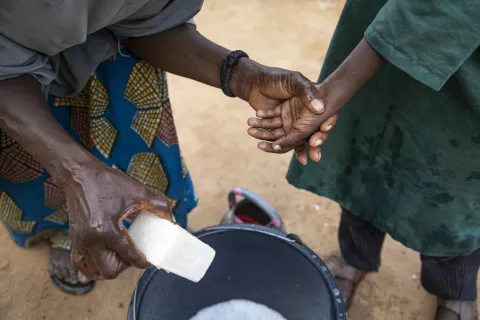Responding to increased cholera cases in Niger
Government and UN delegates paid a visit to the most affected regions of Niger

MARADI - ZINDER (Niger), 15 September 2021 – The Minister of Health, Dr. Illiassou Idi Mainassara, accompanied by WHO and UNICEF representatives paid a four-day visit to the regions of Maradi and Zinder to see first-hand country’s response to cholera outbreak.
As of 6 september 2021, a total of 3,479 confirmed cases with 89 related deaths has been reported across the country, according to the Ministry of Health. Most of the cases (2,049) are from the region of Maradi.
UNICEF, WHO and other partners closely work with the Government to step up the response and prevent further proliferation in the country.










